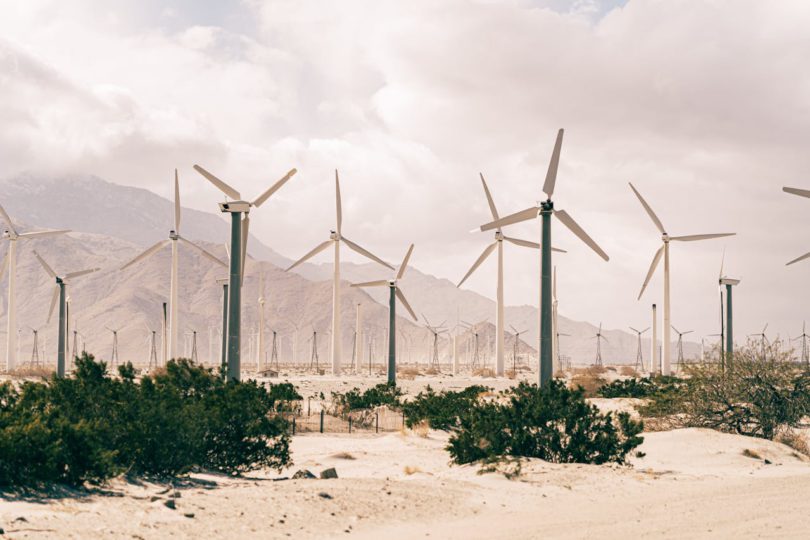Africa’s push toward a green economy is gaining momentum, offering hope that the continent can transform its energy systems and development pathways. The spotlight is on solar power and low-carbon investments, as African leaders gather this week in Addis Ababa, Ethiopia, for the Africa Climate Summit ahead of November’s UN Cop30 talks.
But while optimism is rising, leaders warn that without stronger international backing, Africa’s efforts could stall.
A Continent Ready, but Underfunded
“Africa is ready to play its part in tackling climate change,” said Joseph Mbele, Tanzania’s climate envoy. “But we cannot do it without financing, technology, and skills transfer. Investment is growing, yes, but it’s nowhere near what is needed for us to join global solutions at the scale required.”
This readiness comes against a backdrop of record imports of solar panels across the continent. According to Ember, a global energy think tank, photovoltaic shipments from China jumped 60% between 2024 and 2025, rising from 9 gigawatts to 15. Twenty African countries hit new import records, with growth strongest outside of South Africa.
Yet despite Africa’s immense solar potential, the gains remain modest. The continent accounted for just 4% of global solar generation last year. The International Energy Agency noted in 2023 that Belgium alone had as many solar panels as all of Africa combined.
Energy Access Challenges
The scale of the challenge is daunting. Roughly 600 million Africans still live without electricity, while nearly one billion people rely on firewood or polluting fuels for cooking—burdens that disproportionately affect women and girls.
“Renewables are not just Africa’s biggest opportunity, they’re a necessity,” said Daniel Bekele, regional director for Mercy Relief. “From irrigation and food storage to healthcare and education, clean energy underpins livelihoods.”
Bekele argued that public sector involvement and overseas aid remain critical. “Private investors want quick returns, but renewables require long-term commitments. Without steady public and international support, these projects won’t reach the scale needed.”
Debt, Aid Cuts, and a Growing Funding Gap
African governments are facing record debt burdens, worsened by the pandemic and rising global interest rates. At the same time, development aid is shrinking.
“The decline in official assistance is reshaping our climate strategies,” said former Senegalese president Amadou Fall. “Africa is paying the highest price for a crisis we did not create, while seeing funding promises cut back.”
Private investment has flowed into renewables but rarely into adaptation projects—such as drought-resistant farming, water storage, or flood defenses—that communities urgently need. A new report presented at the summit estimated Africa requires at least $70 billion annually for adaptation, yet received only $15 billion in 2023.
If this gap persists, climate-related costs could swallow 20% of Africa’s GDP by 2050. Patrick Van Dijk, head of the Global Adaptation Alliance, warned: “Africa contributes just 4% of global emissions but faces some of the harshest impacts. Failing to fund adaptation here is short-sighted—it will come back to haunt wealthier nations.”
Resources, Rights, and Responsibilities
Beyond renewables, Africa’s mineral wealth is drawing increasing global interest. The continent holds vast reserves of cobalt, lithium, copper, and rare earths—critical for clean energy technologies. Yet resource extraction often brings human rights challenges, particularly in countries like the Democratic Republic of Congo, where child labor remains widespread.
Weak regulatory capacity and limited public finances make it difficult for governments to ensure that mining benefits local communities. This adds another layer of complexity to Africa’s green transition.
Africa also holds large gas reserves. While climate activists urge a rapid pivot away from fossil fuels, some leaders argue that natural gas remains essential for development. “We cannot just stop using gas overnight,” said envoy Joseph Mbele. “Our people need it for growth and stability.”
The Global Stakes
With 60% of Africa’s population under 25, the continent’s “youthquake” represents both a vast opportunity and a looming risk. If green growth takes root, it could power inclusive development. If not, the fallout could be global.
“Neglecting climate action in Africa will mean more migration, more instability, and consequences far beyond our borders,” warned Dr. Helen Asfaw of Tufts University’s Climate Policy Lab. “This is not just Africa’s problem—it’s everyone’s.”
The message from Addis Ababa is clear: Africa is moving forward, but it cannot move fast enough without reliable partnerships and serious financing. For the global north, the choice is stark—either invest in Africa’s green transition today or face the economic, social, and political costs of inaction tomorrow.

